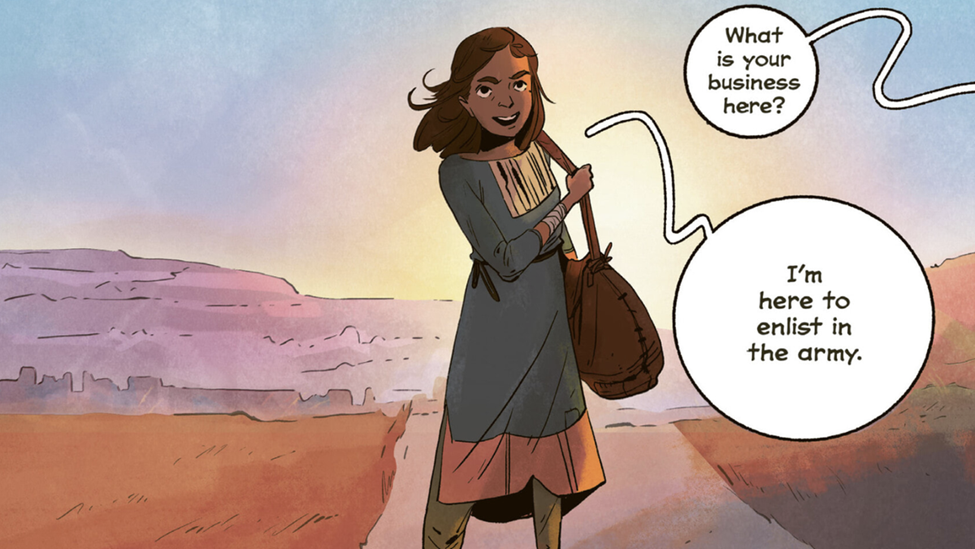Fantasy and fiction have long been vehicles for exploring difficult topics. The veneer of magic or elves or sci-fi tech gives a distance that makes these stories feel safer, and sometimes cathartic or even fun. There have been examples of this throughout all genres of fiction for far too long to create a comprehensive list, but a couple recent examples that I feel handle this concept deftly are Squire by Sara Alfageeh and Nadia Shammas and Witchlings by Claribel Ortega.
I had the opportunity recently to attend a panel with Sara Alfageeh, where she discussed some of the inspirations for Squire. She mentioned how the heart of the story, about a girl from conquered lands trying to become a Knight to earn full citizenship, was very much inspired by the experience of Arab and Muslim Americans in the early 2000s where there was a pressure to prove your American identity, often by joining the military. This story interrogates those pressures and those feelings and how they impacted young adults thoughtfully and beautifully through the narrative and art.
Witchlings, while about young witches using magic to solve a dangerous mystery in the town, is also about people wielding political systems as tools of oppression. There is a town hall scene that I fear many adults would shudder to recognize. It’s portrayed in a very real and approachable, if frightening, way for children, who are more likely than ever to have learned about the real-life equivalents online or through the news. That scene and this story give children language to discuss their fears and their feelings about similar topics, even if their lived experiences lack spells and witchcraft.
Personally, I can easily remember as a child loving a game that explored a community of elves under the heel of humans, struggling to maintain connections to their roots, their culture, their language. As a child of an immigrant that wasn’t taught the language, and who had few cultural peers at school outside of their immediate family, I felt so connected to these characters struggling to hold on to their identity. To hold it as worthy of preserving and of being distinct.
As an adult I can recognize now that that story didn’t always handle its analogies very well, but I still remember fondly feeling seen despite its flaws. And it allows me to consider the strengths and weaknesses of using stories like this to depict these struggles.
If your world with an oppressed people has no people of color, who is this serving? What is the use of making analogies to real world oppression only to exclude those that might seek this catharsis? Are they being used for shock value, or to shine a light on characters struggling with the mundane? Are these characters given personalities, hopes, and dreams outside of their struggles? Will the children reading these stories feel seen, or like these worlds have no place for them?
Cindy Harris (she/they) is a Mexican American comics artist and illustrator that works in the publishing industry. She has worked as a letterer, editor, illustrator, and writer, and loves stories about identity, relationships, and growth.



No comments:
Post a Comment